Trump isn't the only former president to be embroiled in a hush-money scandal. Here are 10 public figures, including 3 US presidents, who have been accused of making payments to keep people quiet.
James Pasley

- Donald Trump was indicted on 34 felony counts of falsifying documents related to alleged hush-money payments.
- US presidents Thomas Jefferson, Warren Harding, and Richard Nixon were all involved in hush-money scandals, too.
Former President Donald Trump was indicted on 34 felony counts of falsifying business records related to covering up hush money payments made to three people, including porn star Stormy Daniels.
It is the first time a current or former US president has faced criminal charges, but it's not the first time a president was embroiled in such a scandal.
US presidents Thomas Jefferson, Warren Harding, and Richard Nixon were all involved in hush money scandals. Other notable politicians who made hush money payments include former treasury secretary Alexander Hamilton and former Sen. John Edwards.
Outside of politics, there have been several public figures who made hush money payments including Harvey Weinstein, Michael Jackson, Bill Cosby, Jerry Falwell Jr., and Bill O'Reilly.
Hush-money payments are when someone pays someone else in exchange for them keeping quiet, often related to something unseemly. The New Yorker described the term as "sultry, lubricious; typically what's being hushed is evidence of sex."
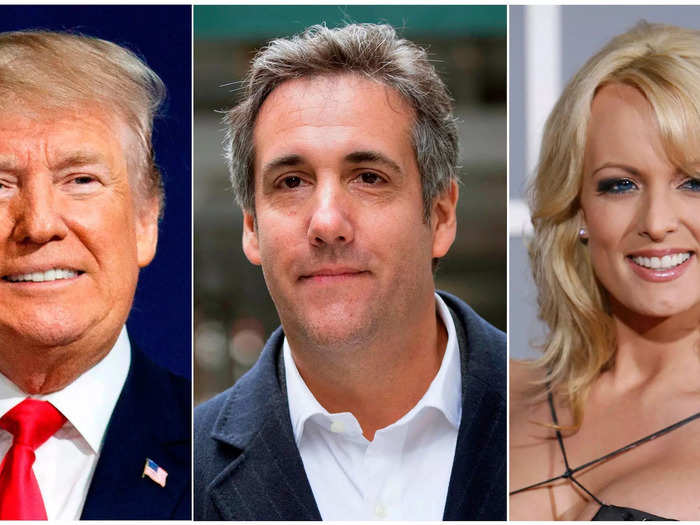
Sources: NPR, The New Yorker
The term was likely coined in an article written in 1709 by politician and writer Richard Steele, who wrote about conduct and morality. "I expect hush-money to be regularly sent for every folly or vice any one commits in this whole town," he wrote in a 1709 article for the British magazine, The Tatler.
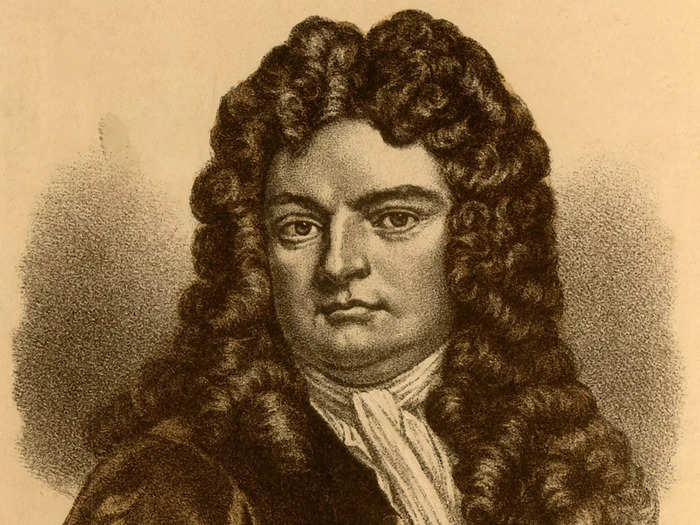
Sources: NPR, The New Yorker
The act of buying silence has been around for thousands of years. It even appears in the Bible, in the book of Genesis. After trying to seduce a man's wife, Abimelech, the king of Gerar, returns his wife and pays the man with cattle and servants, calling it "a covering of the eyes."
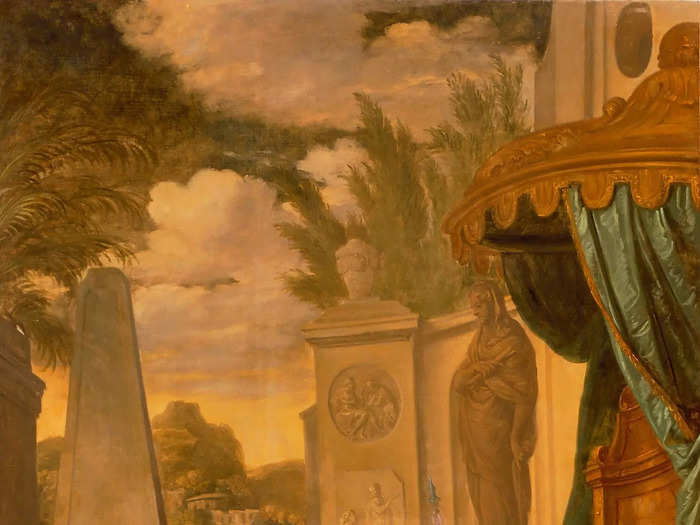
Source: The New Yorker
In 1797, the US had its first hush money scandal. Writer and journalist James Callender reported that records showed US Treasury Secretary Alexander Hamilton paid $1,000 — worth about $25,000 today — in two lump sums to a man named James Reynolds in 1792.

The payment was hush money for Reynolds after he'd caught Hamilton having an affair with Reynolds' wife Maria, which Hamilton ended up publicly detailing in a 95-page pamphlet to prove he hadn't committed any financial misconduct.
While his name was cleared, the pamphlet ended up embarrassing his family and ruining any hope he'd had to run for president.
Sources: Washington Post, History.com
It wasn't until Thomas Jefferson that a US president was involved in an alleged hush money scandal. Jefferson had been occasionally paying sums to the writer James Callender.
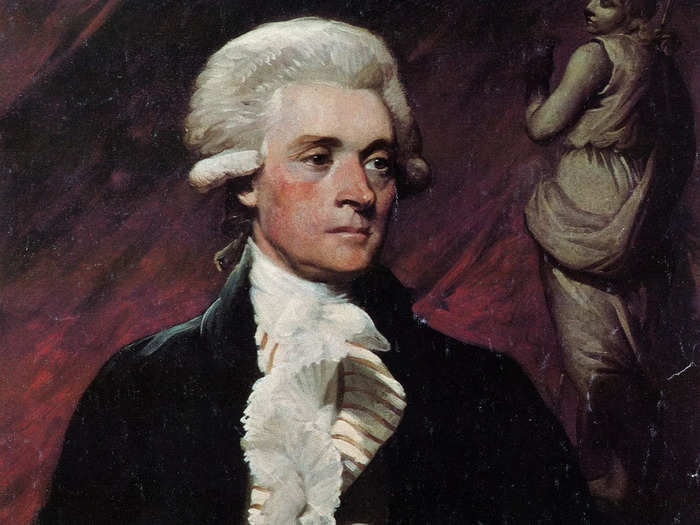
In 1801, he wrote a letter to his friend James Monroe, claiming the payments to Callender were charity for a "man of genius suffering under persecution."
But Callender told people it was a payment for writing defamatory articles about George Washington, John Adams, and Alexander Hamilton. He said it was "not as a charity but a due, in fact as hushmoney."
When Jefferson found out Callender was telling people this he stopped paying him.
"Such a misconstruction of my charities puts an end to them for ever," he wrote to Monroe.
A year later, Callender wrote an article about Jefferson having a relationship with one of his enslaved women, including having more than one child with her.
Source: NPR
Between 1921 and 1923, former President Warren Harding paid an old lover named Carrie Fulton Phillips about $5,000 a year while he was in office — equivalent to nearly $260,000 today, according to the Bureau of Labor Statistics — to keep quiet about their affair.
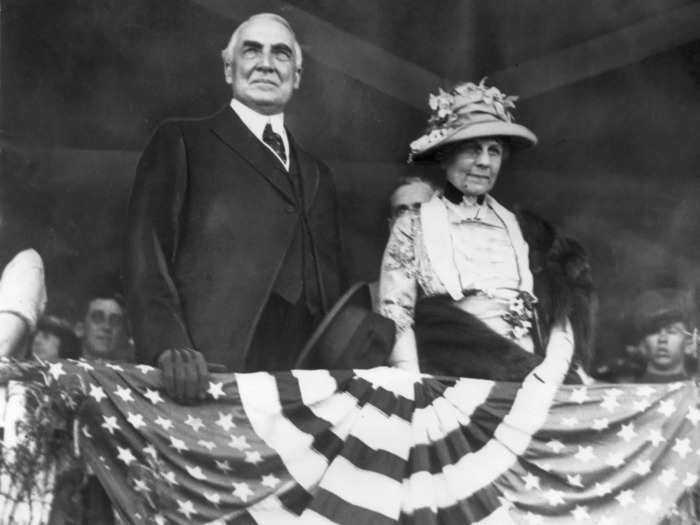
She had kept 900 pages worth of his love letters, and he didn't want people seeing them.
According to The Washington Post, they were "long missives filled with moony sentiment, erotic longings and sometimes despair."
Sources: NPR, Washington Post
That wasn't his only hush money payment. Harding also paid a woman named Nan Britton to keep quiet after she had his child. They reached an agreement involving regular payments of $3,600 a year — about $187,000 today — after she agreed to let her sister's family adopt their child.
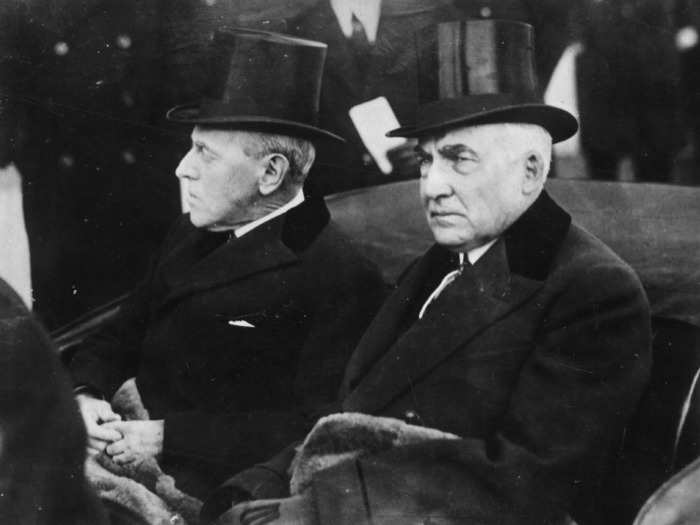
When Harding died, Britton wrote a book called "The President's Daughter," detailing losing her virginity to Harding when he was a senator in his fifties and she was 20.
The book went on to become a bestseller and helped ruin Harding's reputation. According to Politico, "The only historical ranking he'll ever top is the one about how much hush money presidents paid their mistresses."
Sources: NPR, Washington Post, Politico
Arguably, the most famous US president caught in a hush-money scandal was Richard Nixon. In 1973, he was recorded talking about paying off E. Howard Hunt, one of the men who broke into the Watergate Office Building where the Democratic National Committee was based to bug it.
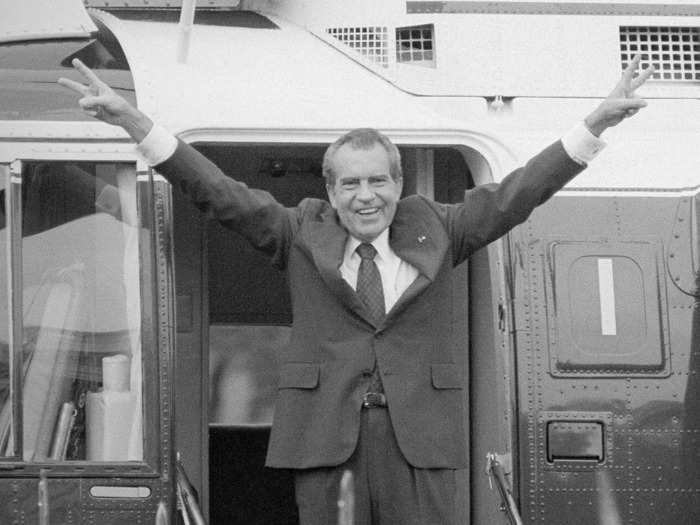
They were caught before they could finish the job, and Hunt later demanded hush money to keep quiet about the job, according to The Washington Post. Nixon reportedly considered making the payment to ensure "national security matters" weren't made public, before deciding against it, The Post reported.
Even if the hush-money payment never actually happened, Nixon ended up resigning as president due to the scandal. He was the first president to ever do so.
Then-President Gerald Ford pardoned him, and Nixon was never criminally charged.
Sources: NPR, Vox, The Atlantic, Washington Post
In 2008, former US Sen. John Edwards arranged hush-money payments of nearly $1 million to Rielle Hunter, his mistress, while he ran for the Democratic presidential nomination.
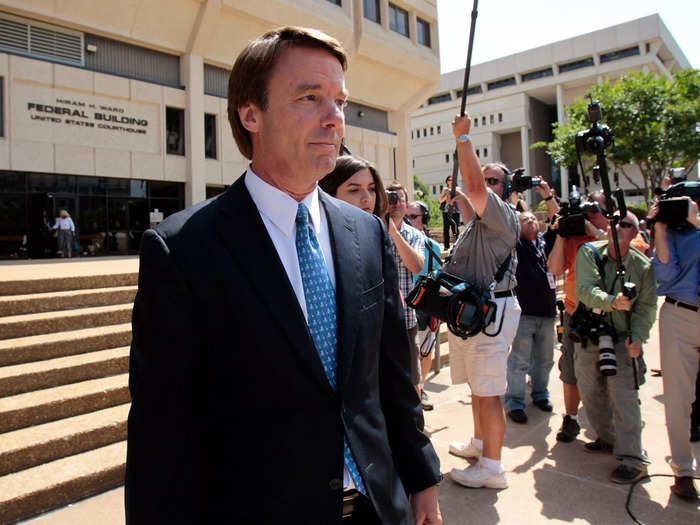
Hunter also had his child, and Edwards didn't want voters or his wife, who was dying of cancer, to know.
After dropping out of the presidential race, he later admitted to the affair and to having a child with Hunter.
In 2011, he was charged with violating federal campaign finance laws but was later acquitted on one charge and the others were dropped after a jury failed to reach a verdict.
Sources: New York Times, Washington Post
Outside of US politics, there have been several famous people who have paid to keep someone silent. After Bette Davis' husband recorded her in bed with billionaire Howard Hughes, the actress paid her spouse $75,000 to keep it secret, according to The New Yorker.
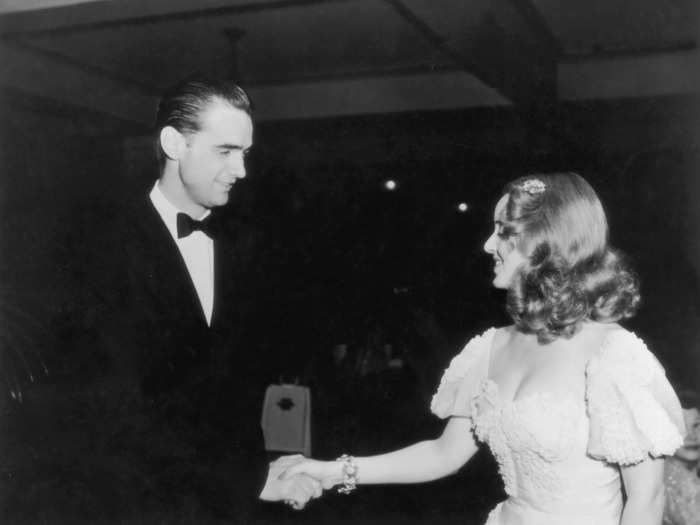
Sources: The New Yorker, Slate
For decades, beginning in 1990, former film producer Harvey Weinstein paid at least eight different women hush-money payments or settlements after they accused him of sexual misconduct.
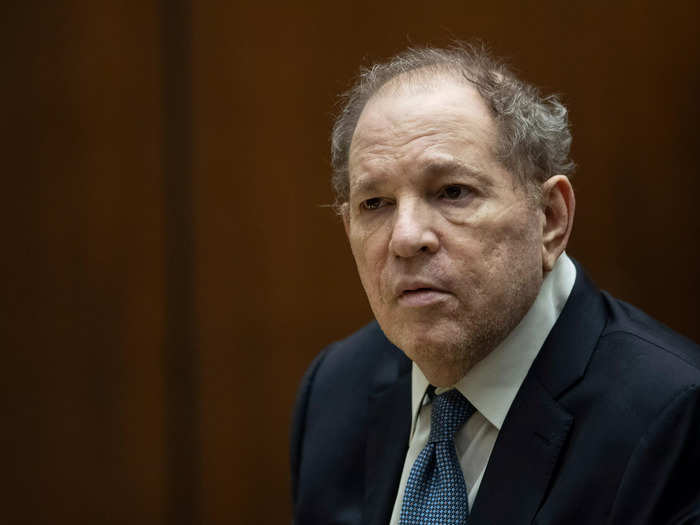
Although the women and the figures have not been disclosed, actress Rose McGowan, who accused Weinstein of raping her, claimed the disgraced film producer offered her $1 million to keep quiet in 2017.
Sources: ABC News, New York Times, New York Times
In 1993, Michael Jackson reportedly paid $25 million in hush money in a confidential settlement to a boy after he was accused of molesting him, first reported by veteran television reporter Diane Dimond.
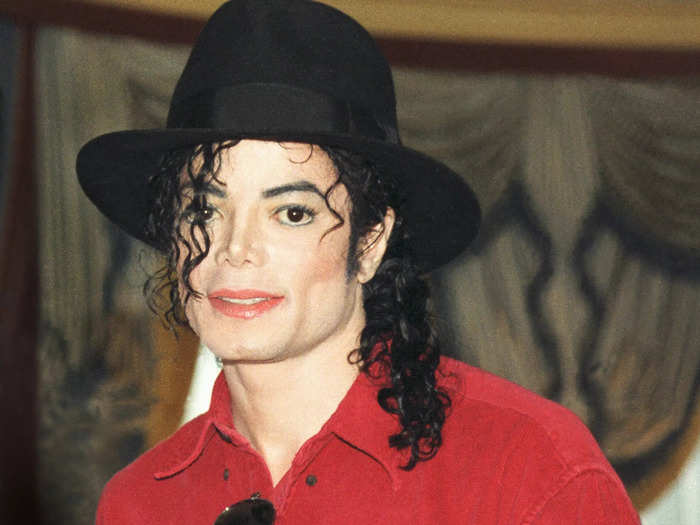
In 2015, lawyers also claimed that Jackson had paid $200 million in hush money payments to up to 20 victims who claimed they were molested by him.
Jackson's estate has denied all allegations.
"We are aware of recent false 'reports' regarding Michael Jackson having, among other things, paid over $200 million to 20 'victims,'" Howard Weitzman, an attorney for Jackson's estate, said in a statement at the time, according to Entertainment Tonight.
"There is not a shred of evidence to support these ludicrous 'reports,'" Weitzman continued. "It is unfortunate that, even in death, Michael cannot be free of these types of allegations, but we are confident that the truth will prevail in the end, just as it did in 2005 when a jury fully exonerated him."
Sources: CNN, The New Yorker, Independent, NPR, Entertainment Tonight
In 2006, actor and comedian Bill Cosby paid $3.4 million in hush money to a Canadian massage therapist named Andrea Constand after he drugged and sexually assaulted her, according to a Pennsylvania prosecutor.
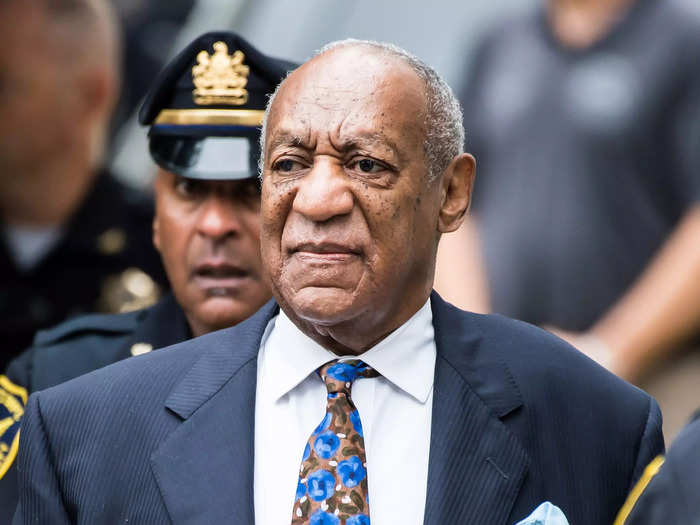
Cosby was publicly accused of similar assaults by 50 women.
Sources: The New Yorker, The Guardian
In 2017, The New York Times found that Fox News host Bill O'Reilly and the network had spent $13 million in hush money since 2004 to keep five women from going public about several allegations against him, involving sexual assault and inappropriate behavior.
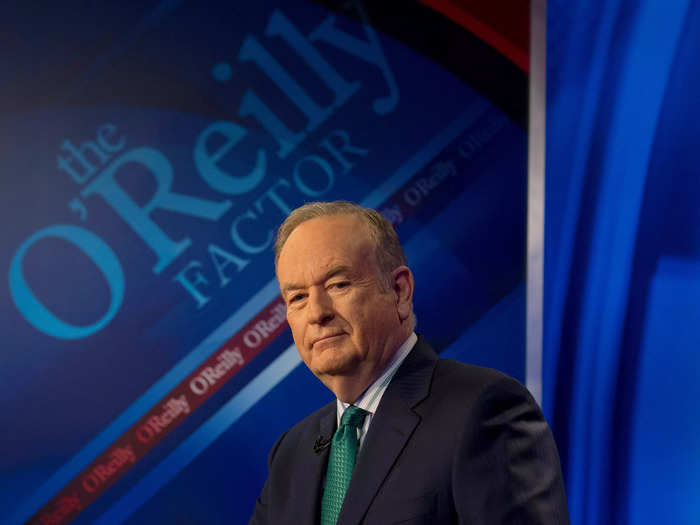
Sources: The New Yorker, New York Times, New York Times
In 2013, Jerry Falwell Jr., who was the former president of Liberty University, one of the largest Christian colleges in the world, sought to conceal an affair his wife Becki had with a pool attendant named Giancarlo Granda in Miami.
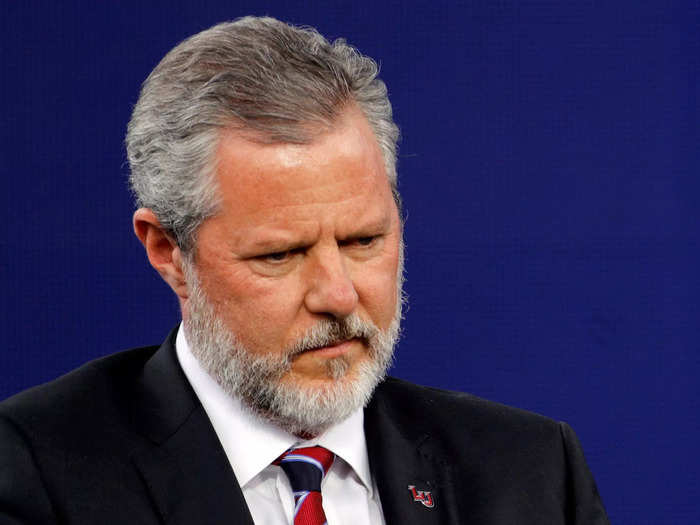
The exact details are disputed, but Granda claimed Becki asked him to have sex while her husband watched, though Falwell denied being involved in the affair.
Soon after, records showed Falwell invested $1.8 million to help Granda purchase a property to start a hostel in Miami Beach. In 2020, Falwell released a statement confirming the affair, according to The Wall Street Journal.
He also claimed Granda had threatened to go public with his affair with Becki unless they paid him.
Granda responded that the claims of extortion were false, according to Reuters.
Sources: Wall Street Journal, The New Yorker, BuzzFeed News, Buzzfeed News, Vanity Fair, Vox, Reuters
Most recently, former president Donald Trump faces 34 charges of falsifying records to cover up hush money payments made to three people, including porn star Stormy Daniels.
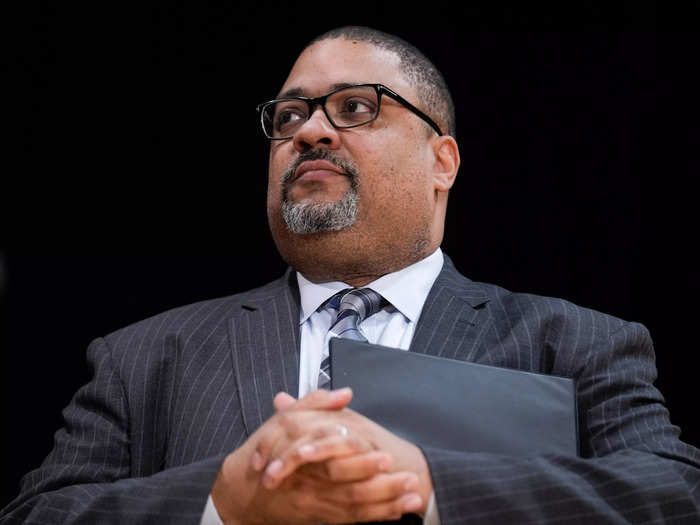
The charges are related to a probe into payments to two women for affairs and one to a doorman who claimed to have a story about Trump having a child with one of his employees.
It is the first time a former US president has faced criminal charges. Trump has pleaded not guilty to all charges.
Sources: Wall Street Journal, AP News
It's worth noting that these are hush-money payments that were made public. The public doesn't know about all of the hush money payments that worked. "This shouldn't be taken as something I advise or support, but coverups work all the time," Eric Dezenhall, a crisis-management specialist, told The New Yorker.

But he said things had changed in the last two decades.
"Twenty years ago, if you wrote somebody a check to stay quiet, it would stay quiet," he said. "The problem today is people take your money, and then they go on TV anyway."
Source: The New Yorker
Popular Right Now
Popular Keywords
Advertisement